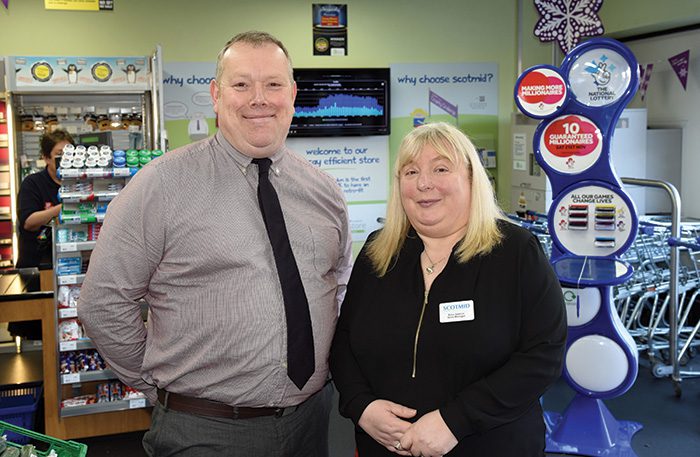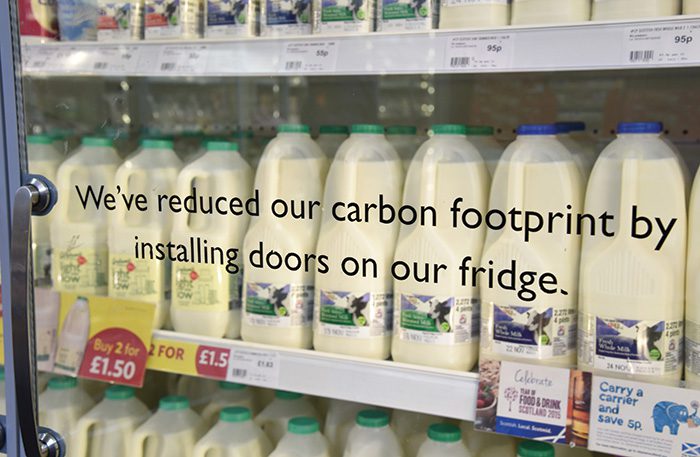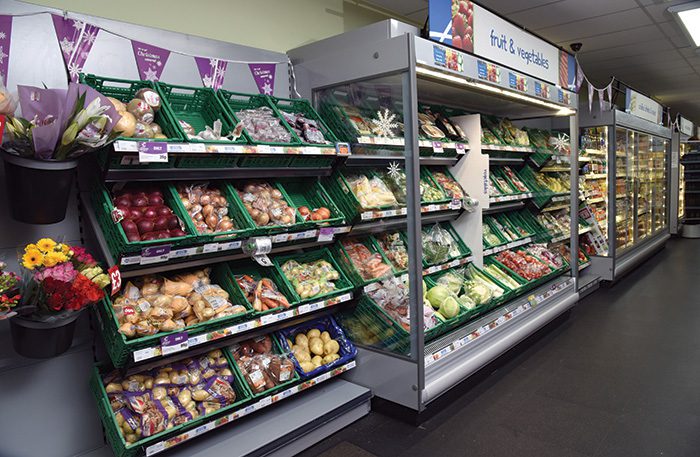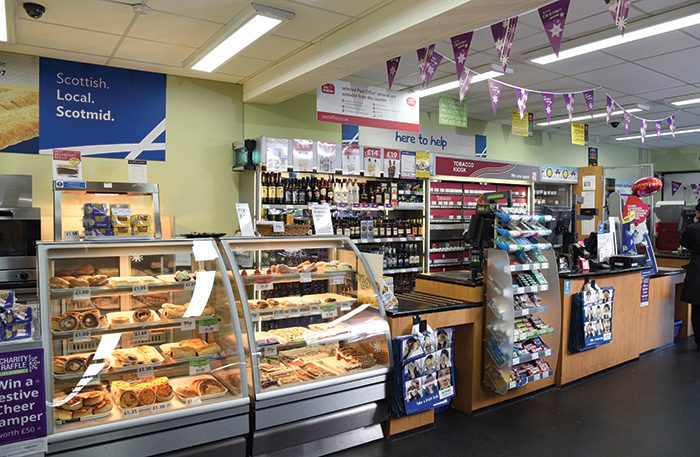Scotmid Moredun, Moredun Park Road, Edinburgh
Scottish Grocer’s Sustainable Retailer of the Year award is about retailers who take practical steps to minimise the effect their business has on the environment. But well-planned and executed sustainability programme doesn’t only help a business reduce its carbon footprint, it can also save money.

This year’s winner, Scotmid Moredun in Edinburgh, is proof of both. When the store was due for a refit, Scotmid decided to make it a test bed for energy efficiency and now, a year after the upgrade was completed, the store is creating 47 tonnes less CO2 a year and its energy use is down by 55%. And, with shoppers lingering longer in more comfortable conditions, sales are up by at least 4% on last year, store manager Rose Spence explained.
Since winning the award in March, the store has been visited by a host of independent retailers as well as representatives from supermarket chains, all keen to find how the unit managed to make such dramatic changes and to see what they could learn from its work.
Scotmid’s project manager David Greenshields said: “We had Mike Barry, the head of sustainable business at Marks and Spencer, in for a look and he tweeted that anybody who was anybody in retail should visit Scotmid Moredun.”
David and Rose say there are four key areas to consider for anyone who wants to create an environmentally friendly store, and make savings – lighting, refrigeration, heat and waste.

At Scotmid Moredun a five-zone lighting system using LED panels ensures light is only used when and where it is needed. For example, the Post Office counter closes at 5.30pm, then lighting in that area dims to 20%.
And lighting can be changed in different parts of the shop to efficiently meet a variety of lighting needs. For example at the entrance the store lighting adjusts according to the amount of natural light available.
In staff and storage areas, lighting is controlled by infrared motion sensors so that energy is only used when necessary.
Refrigeration adaptation is perhaps the single biggest contributor to the store’s improved eco-performance.
The chillers have doors to keep the cold in and the heat out, only run when they are needed and always use specifically appropriate temperatures.
“Most people are buying chilled beer later on in the day to take home. So the BWS fridge shuts down at night and comes back on each morning,” David said.
Given that the chiller doors keep warm air out, the units don’t need to run as hard or use as much power, Rose explained. And an alarm warns if the temperature has dipped or increased beyond set levels, for example if something has jammed a door open.

And the use of LED lighting inside the chillers reduces discolouration of meat products and minimises food waste.
With the cold air in the chillers kept inside the unit the store aisles don’t have to be heated to the same degree. Sensors across the store send information back to the control equipment that ensures the ambient temperature remains at optimum temperatures throughout the shop.
An air curtain at the entrance blows warm air when the door is opened, to battle the chilling effects of the great Edinburgh outdoors, and automatically cuts off when the door slides to a close. And heat generated by the chillers is recovered and used to heat the building.
Like all Scotmid stores, the Moredun site sends its waste back to a central point for recycling, but since the refit the shop has greatly reduced food waste and, with stock loss at a minimum, now sends less than 2% of its waste to landfill.
Recycling also played a part in the physical refit of the shop. The ceiling tiles are made from recycled material and building contractor CBES supports the Trees for Life scheme.

The shop’s energy-saving figures are on show on a large TV screen near the entrance and Rose and her staff are happy to talk to locals about how they might apply some of the same techniques at home.
Rose is also happy to share her knowledge with independent retailers looking to improve their energy use.
“They are always welcome to come and have a tour,” she said.
“The fridges are fantastic. Product is fresher, product life is longer, there’s less waste and our bottom line has improved.”
David added: “We got a grant from Resource Efficient Scotland and I believe there are still grants available for locals and independents.”
Rose said: “Our customers love the new shopping environment but it has also become much nicer for the staff.
“The new lighting and the temperature control make the shop more comfortable.
“At the end of the day, though, retail is about the bottom line and the eco refit means we are saving thousands of pounds a year.”










